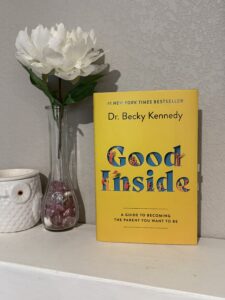DRAFT BLOG- FINDING HEALTHY TENSION REDUCTION CAN HELP SELF-HARM AND DESTRUCTIVE COPING
Ever been in an argument and the other person tells you to calm down? In some rare scenario, maybe that was helpful. Most likely, it was the wrong thing to say and actually set you off again! We get a lot of messages that we should be more calm, less stressed. Okay, maybe so. But the expectation that we all walk around in Zen-like existence is a pretty unreasonable expectation.
Stress is part of life and in healthy doses acts as a motivator, urging us to grow. The sweet spot for stress is a sense of excitement or challenge that might lead up to the event(s). A healthy level of stress should feel like a doable challenge, just barely beyond our comfort. If there is no stress at all, most likely you are doing something familiar or that doesn’t challenge you.
If the theory is we are always encountering change in life, opportunity to grow, then we can be assured there will be stress. While the same situation can bring different levels of stress for different people, there are definitely predictable times in life and events that are known for being a “big deal”. Layer a few of those on top of each other and you are looking at a situation where while the “stuff’ is supposed to be normal, it doesn’t feel great, perhaps it even seems overwhelming.
When is stress a problem? Inside you probably feel overwhelmed. Outside it might look like reacting to little things, avoiding anything that takes our energy, or acting in ways not typically like us. In fact, many people assume that self-harm is about wanting to die, but so often it is a coping for major emotional distress.
So let’s talk about the stress cycle. Even when big stress becomes big overwhelming, there are some ways to predict how and when it will get better. First, we have a reaction to the Big Deal (what we will call our trigger). Emotions and body functions take on a “flight or fight” response. After the initial message that Big Deal is underway, there are changes in our bodies, our breathing, heartrate, hormones—all working to give us energy to fight or to run away. The cascade of events in our body can continue from 15 minutes to hours after an event. Amazingly, if our thoughts remain concerned the cascade of physical adaptations continues to be activating.
Because this is all uncomfortable, we often seek the “tension release” stage of a crisis. This is something to help us feel calmer. While this is a valid need, often our coping can be adding fuel to the internal-stress-response-“fire”. For example, piling on caffeine into an already exhausted system, or anxious thought cycles can re-start the cycle well after the actual Big Deal is over.
Or maybe we live going from Big Deal to Also Big Deal. Finding healthy tension from the body can allow us to calm, regain our ability to be rational and recover from the intensity of the our stress. This can feel impossible, but even 10-15 minutes returning to a relaxed state can allow our body to recover. It is the chronicity of stress that causes high cholesterol, heart disease and strokes.
Healthy tension reduction needs to be your new “calm”. This is something that helps us spend any remaining physical or emotional energy left from the stress. That might sound confusing. Spend energy? Isn’t that the problem? Yes and no. Stress is an active process in our body that needs resolution. We don’t just go from all-fired-up to sleepy-eyed and calm. The muscles need a way to reduce their tension, we need our hearts and breathing to find a slower rhythm, the activating hormones need a way out of the bloodstream. Time away from stimulus is one way, but additional support for the body an also help.
Adaptive tension reduction might look like exercise, deep breathing, pacing or rocking. Crying is part of a healthy release of tension. As we begin to feel tired, sweaty, weak or worn down we are in fact coming down from the stress. So often we judge ourselves for this experience. We worry that we will be tired or discouraged forever. We feel further overwhelmed because we feel weak. Would a marathoner be upset when they need recovery after running 26.2 miles? Not if they want to keep running. A huge part of the stress response is anticipating the need for some recovery. Amazingly, even short recovery time done right can help the stress move into the rear view mirror and we can feel ready for the next challenge.
Battling the feeling of exhaustion is about as unproductive as being angry about stress. Learning to “ride the wave” of life can mean getting comfortable treating ourselves as an “athlete” of life who is capable, but might need training and recovery to avoid injury. Getting real about desires to numb out life, or enhance pain/risk as a way to let off steam might be a first step to healthier coping. Feeling stress doesn’t mean you are weak, just human.







